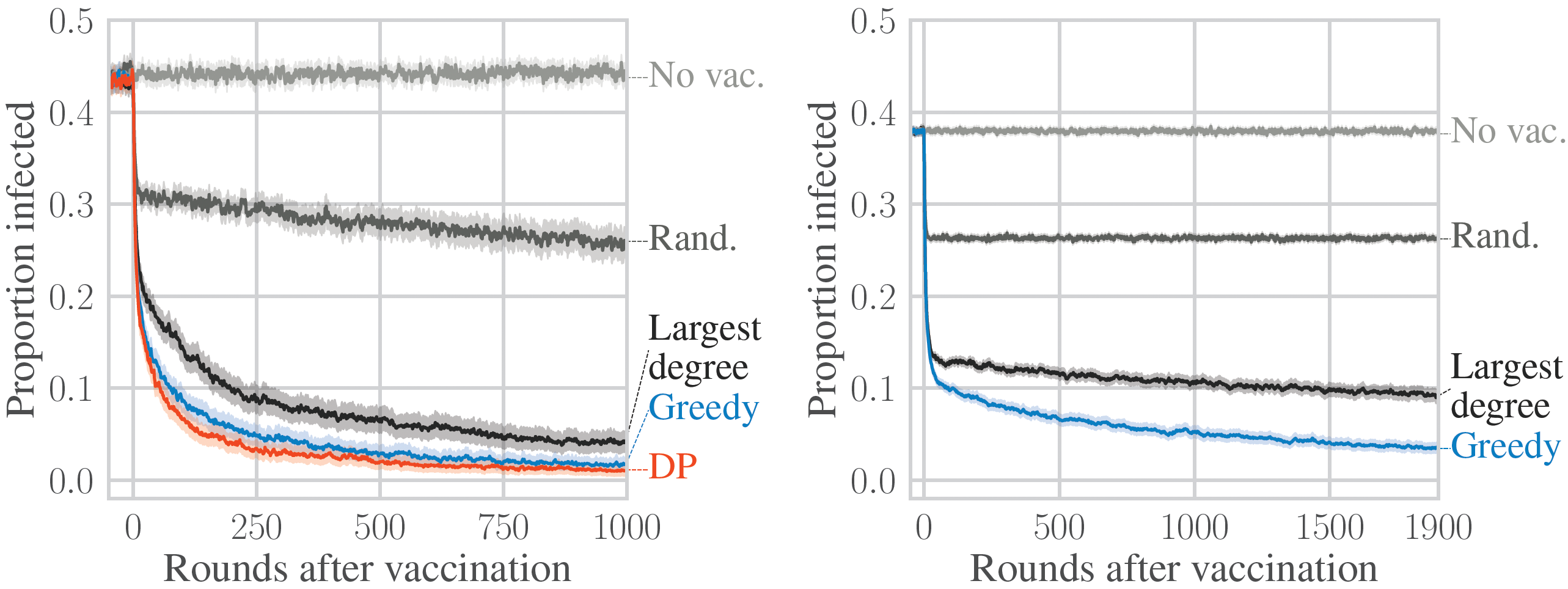Learn to Vaccinate: Combining Structure Learning and Effective Vaccination for Epidemic and Outbreak Control
Poster presentation at ICML 2025
Presented by Sepehr Elahi & Paula Mürmann at ICML 2025.
| Poster time | Poster location | Paper PDF | Poster | Video | Slides |
|---|---|---|---|---|---|
| Wed 16 July 4:30 — 7 p.m. | East Exhibition Hall A-B #E-1202 | Link | Link | Link | Link |
TL;DR: We develop algorithms to learn the graph structure and vaccinate SIS epidemics, providing sample complexity bounds, strategy optimality, and experimental validation.
Lay summary: Imagine a contagious disease spreading through a population, but the contact network—who is infecting whom—remains completely hidden. Only who gets infected and when is observed, and a limited number of vaccines must be allocated to stop the outbreak as quickly as possible. Our work tackles exactly this: how to choose effective vaccinations when the contact network is hidden. We first develop an algorithm that reconstructs the hidden contact network using only observations of who gets sick and when. With the learned network in hand, we propose two vaccination strategies that determine who to vaccinate: one that’s mathematically optimal but slow to compute on big networks, and another that’s much quicker and almost as good. We show that our learn-to-vaccinate approach effectively controls simulated outbreaks across a range of settings, including real-world contact networks from flu epidemics. This early work paves the way for smarter, data-efficient vaccination strategies that can support faster, more effective outbreak response—even when the underlying contact network is unknown.
